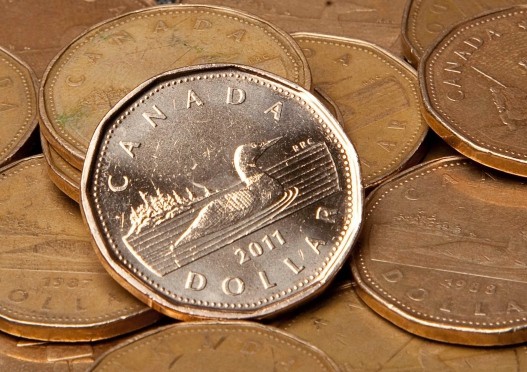The loonie is still a petrocurrency, this investor says

 Are we paying for our Tim’s everyday with petrodollars?
Are we paying for our Tim’s everyday with petrodollars?
Opinions differ, with some experts saying that the link between Canada’s currency and the rise and fall of the price of oil is waning, while others say it’s an inevitability that a resource and oil-based economy like ours has its currency tied to oil.
Crude oil has been having a day of it lately, with the US benchmark rising to almost US $55 a barrel on expectations that OPEC-led production will see further cuts going into next March. After three years in the doldrums, the price of Brent crude jumped over 17 per cent this year and West Texas crude by more than 11 per cent.
With those numbers, you’d think that the Canadian dollar would be heading skyward, too. Not so much. While gaining some ground earlier this summer, the loonie is now poised for a three-month low, closing today at $0.7761.
Is this evidence of a decoupling of Canada’s currency from oil’s ups and downs? It depends who you ask. Although oil strictly makes up only about three per cent of Canada’s GDP, many say that it still has a strong grip on the loonie, as evidenced by the close tracking of the dollar to the price of crude in recent decades. In just the period between 2000 and 2014, for every dollar (US) increase in the West Texas benchmark, we saw a corresponding uptick in the Canadian dollar of 0.417 cents (US).
Granted, there is less direct correlation recently, but this has had more to do with the direction oil has been heading than a lack of impact. Declining oil prices are a sign of a decrease in demand, meaning that oil-producing regions are taking a hit. But the same can’t be said for rising oil prices, especially this one, which hasn’t been a factor in the dollar languishing as much as moves by the central bank have.
The petrocurrency label still fits, says Tim Pickering, Chief Investment Officer at Auspice Capital, who says that the recent divergence doesn’t tell the whole picture.
“You’ve got to look at a broader context than a few months here and there,” says Pickering, to BNN’s Michael Hainsworth. “The definition of a petrocurrency gets thrown around [but] it cannot be argued that the importance of oil price [doesn’t] affect Canada. It’s squarely a petrocurrency in that sense.”
Pickering points to the twinned movement of interest rates and oil as more evidence, saying, “As we saw the price of oil drop in the last few years, the [Bank of Canada] reduced interest rates, and the bank surprised everybody this summer with two rate increases,” he says. “That was in line with the rally in oil and, specifically, with the strength of Canadian oil that we’ve seen since June.”
The recent upswing in Canadian oil is being reflected in a new report from the Petroleum Services Association of Canada, which predicts an increase in drilling activity (most of it in Alberta) of four to five per cent for 2018, accounting for 7,900 new wells, a growth over 7,550 wells this year.

